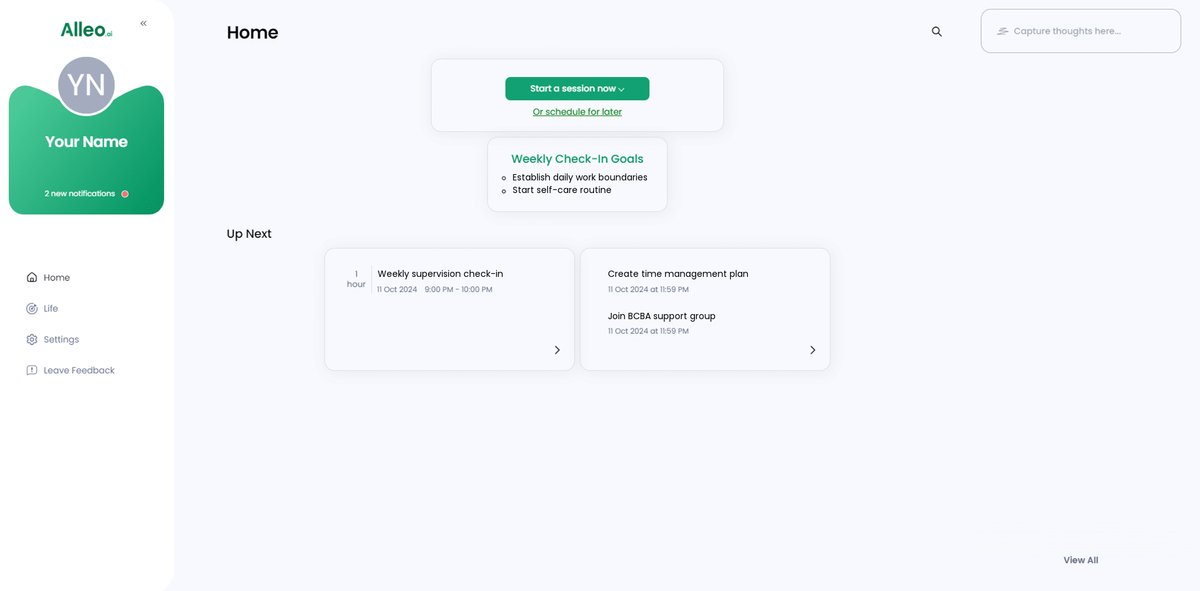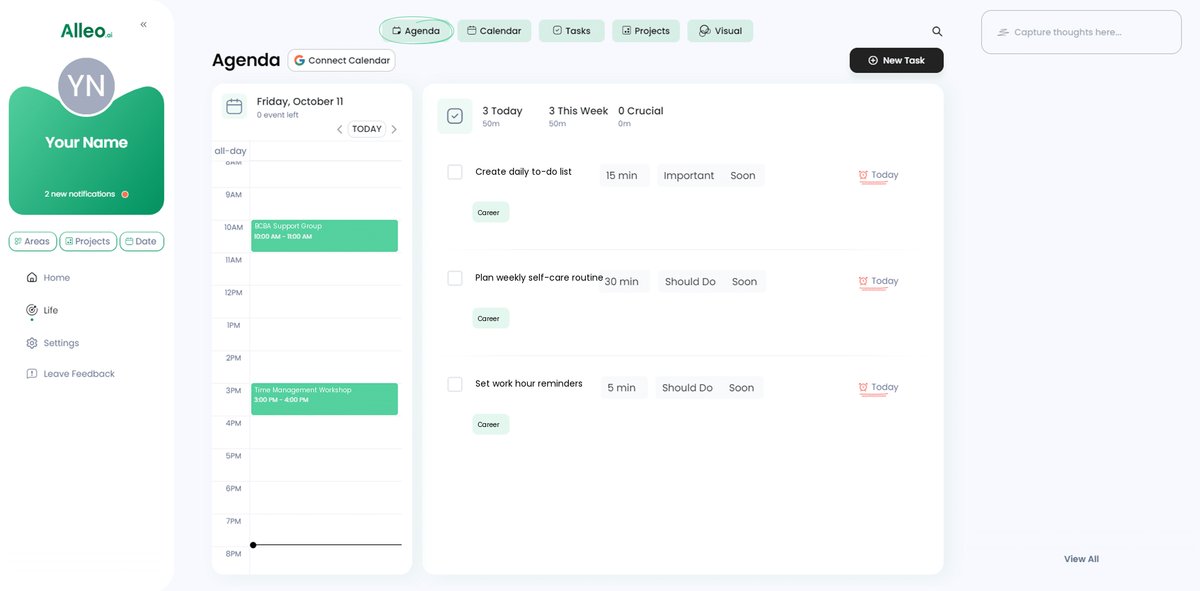4 Powerful Strategies for BCBAs to Overcome Burnout and Boost Job Satisfaction
Are you a BCBA struggling with burnout and job dissatisfaction? Preventing BCBA burnout is crucial for maintaining a fulfilling career in behavior analysis.
As a life coach, I’ve helped many professionals navigate these challenges. I understand the unique pressures BCBAs face, from high caseloads to inadequate support. Implementing effective Behavior Analyst self-care strategies is essential for long-term success in the field.
In this article, you’ll discover actionable strategies to improve your work-life balance for ABA professionals. Learn how effective time management, setting boundaries, seeking support, and practicing self-care can transform your professional life. These BCBA stress management techniques are key to preventing burnout and enhancing job satisfaction.
Let’s dive in and explore professional development for BCBAs that focuses on personal well-being.

Understanding the Burnout Crisis Among BCBAs
Preventing BCBA burnout is crucial, as burnout among BCBAs is alarmingly common, and it’s not hard to see why. Many professionals in this field face overwhelming caseloads and a lack of adequate support, leading to emotional and physical exhaustion.
In my experience, people often find themselves working long hours without sufficient breaks. This intense workload not only impacts job satisfaction but also leads to high turnover rates, highlighting the need for effective BCBA stress management techniques.
The consequences are far-reaching, affecting not just the professionals but also the quality of care they provide. Implementing work-life balance for ABA professionals is essential to mitigate these issues.
It’s clear that this issue needs addressing. Let’s explore actionable strategies to help you navigate these challenges and prevent BCBA burnout effectively.

Effective Strategies to Prevent Burnout and Job Dissatisfaction
Overcoming this challenge requires a few key steps. Here are the main areas to focus on to make progress in preventing BCBA burnout:
- Implement effective time management strategies: Prioritize tasks, set realistic goals, and allocate time blocks for focused work and breaks, essential for work-life balance for ABA professionals.
- Establish clear boundaries with work commitments: Define and communicate work hours, create a dedicated workspace, and schedule regular time off, crucial for setting boundaries as a BCBA.
- Seek regular supervision and peer support: Attend supervision sessions, join peer support groups, and find a mentor to enhance collaborative support systems in behavior analysis.
- Practice daily self-care and stress reduction: Incorporate mindfulness practices for BCBAs, engage in physical activities, and develop a self-care plan to manage BCBA stress and prevent burnout.
Let’s dive in!
1: Implement effective time management strategies
Effective time management is crucial for BCBAs to avoid burnout and maintain a healthy work-life balance. Preventing BCBA burnout often starts with mastering these essential skills.
Actionable Steps:
- Prioritize tasks using the Eisenhower Matrix: Identify urgent and important tasks and delegate or defer less critical activities, a key BCBA stress management technique.
- Set specific goals for daily tasks: Break down large projects into manageable steps and use calendars or to-do lists to stay organized, enhancing work-life balance for ABA professionals.
- Allocate time blocks for focused work and breaks: Implement the Pomodoro Technique to ensure productivity and regular rest periods, an essential time management tip for behavior analysts.
Explanation: Implementing these strategies can help you manage your workload more efficiently, reducing stress and preventing BCBA burnout.
Research shows that structured time management can significantly improve job satisfaction and work-life balance. For more insights, consider reading about balancing success in ABA.
Key benefits of effective time management for preventing BCBA burnout:
- Increased productivity and efficiency
- Reduced stress and overwhelm
- Improved work-life balance for ABA professionals
With these steps, you can regain control over your schedule and reduce the risk of burnout, contributing to overall Behavior Analyst self-care strategies.

2: Establish clear boundaries with work commitments
Creating clear boundaries with work commitments is essential to maintaining a healthy work-life balance and preventing BCBA burnout.
Actionable Steps:
- Define and communicate work hours: Clearly state your work hours to colleagues and supervisors, and adhere to them strictly as a key BCBA stress management technique.
- Turn off work notifications: Disable work-related notifications outside of your designated work hours to prevent interruptions during personal time, a crucial aspect of work-life balance for ABA professionals.
- Create a dedicated workspace: Set up a specific area for work that is free from distractions, signaling when you are in “work mode” as part of your Behavior Analyst self-care strategies.
Explanation: Establishing clear boundaries helps you separate work from personal life, reducing stress and preventing burnout for BCBAs.
For more insights on how boundaries can improve well-being, read this article on preventing burnout.
Clear boundaries ensure you have time to recharge, ultimately enhancing your productivity and job satisfaction as a BCBA.
By setting boundaries, you create a sustainable work environment that supports both your professional development for BCBAs and personal well-being.
3: Seek regular supervision and peer support
Seeking regular supervision and peer support is crucial for maintaining your well-being and job satisfaction, and it’s an essential strategy for preventing BCBA burnout.
Actionable Steps:
- Attend weekly supervision sessions: Schedule regular check-ins with your supervisor to discuss challenges and seek guidance on BCBA stress management techniques.
- Join a peer support group: Participate in local or online BCBA communities to share experiences and advice, fostering collaborative support systems in behavior analysis.
- Find an experienced mentor: Seek out an experienced BCBA for mentorship and set up regular meetings to discuss career development and professional development for BCBAs.
Explanation: Regular supervision and peer support can significantly reduce stress and prevent burnout. Engaging in these practices helps you stay connected, gain insights, and feel supported, contributing to work-life balance for ABA professionals.
For more information, read about the importance of supervision in preventing burnout.
Benefits of seeking support:
- Enhanced problem-solving skills
- Improved professional growth
- Increased job satisfaction
By establishing these support systems, you’ll enhance your resilience and job satisfaction, effectively preventing BCBA burnout and improving your overall well-being as a Behavior Analyst.

4: Practice daily self-care and stress reduction
Practicing daily self-care and stress reduction is vital for maintaining a healthy work-life balance and preventing BCBA burnout.
Actionable Steps:
- Engage in regular physical activities: Schedule daily exercise, such as yoga or walking, to reduce stress and boost your mood as part of your Behavior Analyst self-care strategies.
- Incorporate mindfulness practices: Practice daily meditation or deep breathing exercises to enhance relaxation and mental clarity, which are essential BCBA stress management techniques.
- Develop a personalized self-care plan: Identify activities that bring you joy and relaxation, and allocate specific time for these activities to maintain work-life balance for ABA professionals.
Explanation: Engaging in self-care and stress reduction techniques can significantly improve your overall well-being and job satisfaction, helping in preventing BCBA burnout.
Research indicates that regular self-care practices can help mitigate burnout and enhance resilience. For more information, consider exploring the benefits of mindfulness and physical activities through this resource on balancing success in ABA.
Self-care essentials for BCBAs:
- Regular exercise or movement
- Mindfulness or meditation practice
- Hobbies or leisure activities
By incorporating these practices, you can create a more sustainable and fulfilling professional life while preventing BCBA burnout and improving your overall work-life balance as an ABA professional.

Partner with Alleo to Prevent Burnout
We’ve explored the challenges of burnout among BCBAs and strategies to overcome them. But did you know you can work with Alleo to make this journey of preventing BCBA burnout easier and faster?
Alleo offers personalized coaching sessions tailored to your specific needs, including BCBA stress management techniques and time management tips for behavior analysts. Setting up an account is simple.
Create a personalized plan, and start your journey to a balanced professional life, focusing on work-life balance for ABA professionals.
Alleo’s AI coach provides full coaching sessions, just like a human coach. Get affordable, tailored support with a free 14-day trial, no credit card required. Our approach incorporates mindfulness practices for BCBAs and professional development for BCBAs.
The coach will follow up on your progress, handle changes, and keep you accountable via text and push notifications, helping you maintain Behavior Analyst self-care strategies.
Ready to get started for free and learn about setting boundaries as a BCBA?
Let me show you how!
Step 1: Log in or Create Your Account
To begin your journey towards a balanced BCBA career, log in to your Alleo account or create a new one if you haven’t already.

Step 2: Choose Your Focus Area
Select “Improving overall well-being and life satisfaction” as your goal to address burnout and enhance your work-life balance as a BCBA. This focus area directly tackles the challenges discussed in the article and sets you on the path to a more fulfilling professional life.

Step 3: Select “Career” as Your Focus Area
Choose “Career” as your focus area in the AI coach to address burnout and job dissatisfaction, aligning with the strategies discussed for BCBAs to improve work-life balance and professional fulfillment.

Step 4: Starting a Coaching Session
Begin your journey with Alleo by scheduling an intake session, where you’ll discuss your BCBA burnout concerns and collaboratively develop a personalized plan to improve your work-life balance and job satisfaction.

Step 5: Viewing and Managing Goals After the Session
After your coaching session, easily access and track your progress by viewing the goals you discussed on the Alleo app’s home page, allowing you to stay focused on improving your work-life balance as a BCBA.

Step 6: Adding events to your calendar or app
Use the Alleo app’s calendar and task features to schedule and track your progress on implementing time management strategies, setting boundaries, seeking support, and practicing self-care, helping you maintain a balanced professional life as a BCBA.

Embracing a Balanced Professional Life
Taking care of yourself is crucial for preventing BCBA burnout.
We’ve discussed the importance of time management, setting boundaries, seeking support, and practicing self-care. These strategies can transform your work-life balance for ABA professionals and job satisfaction.
Remember, you’re not alone in this journey. Many BCBAs face similar challenges in stress management.
By implementing these Behavior Analyst self-care strategies, you can regain control over your professional life and well-being.
Alleo is here to support you in preventing BCBA burnout.
Our AI coach offers personalized guidance to help you stay on track with BCBA stress management techniques.
Try Alleo for free and start your journey to a balanced, fulfilling career in behavior analysis.
You deserve it.